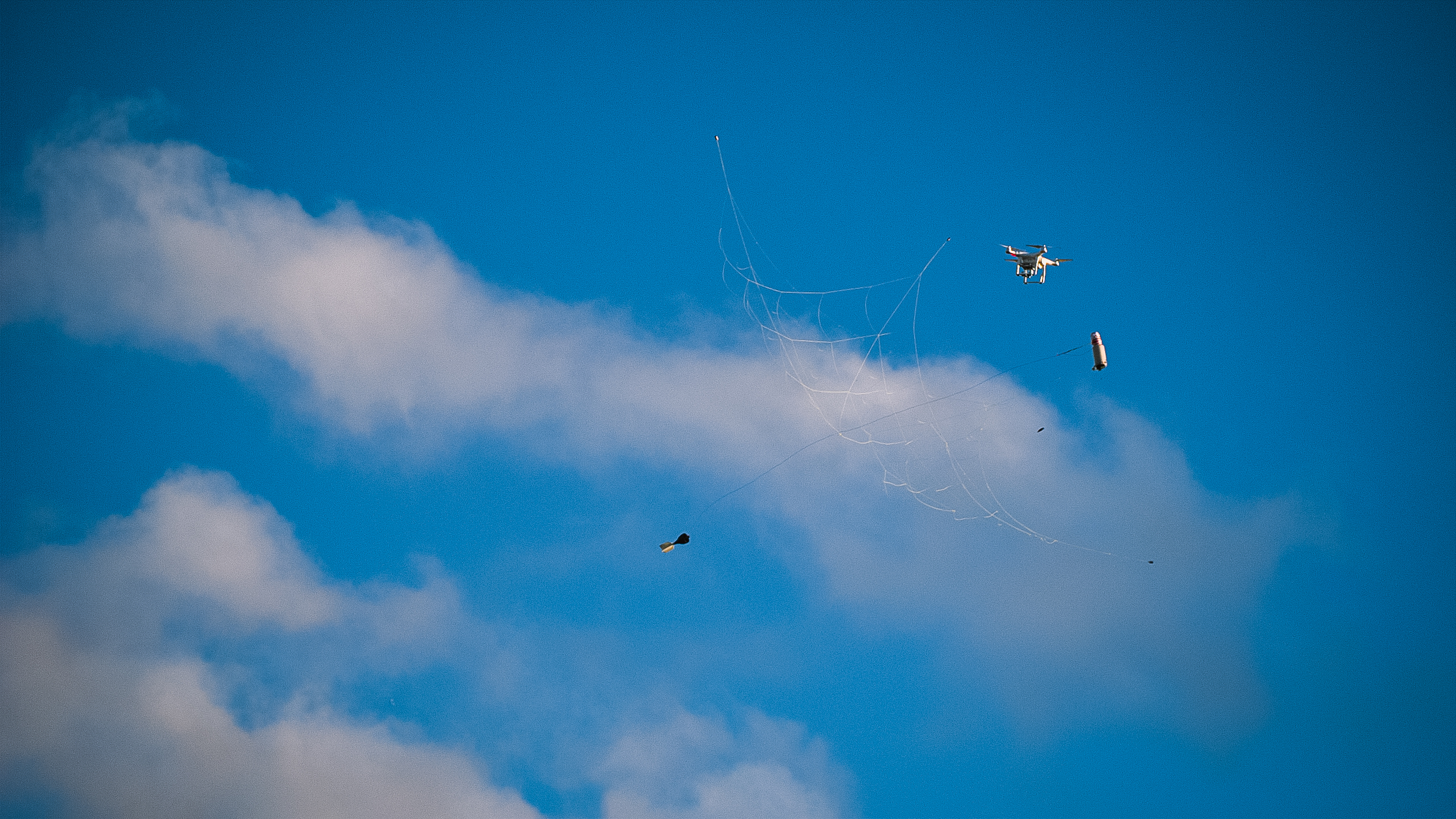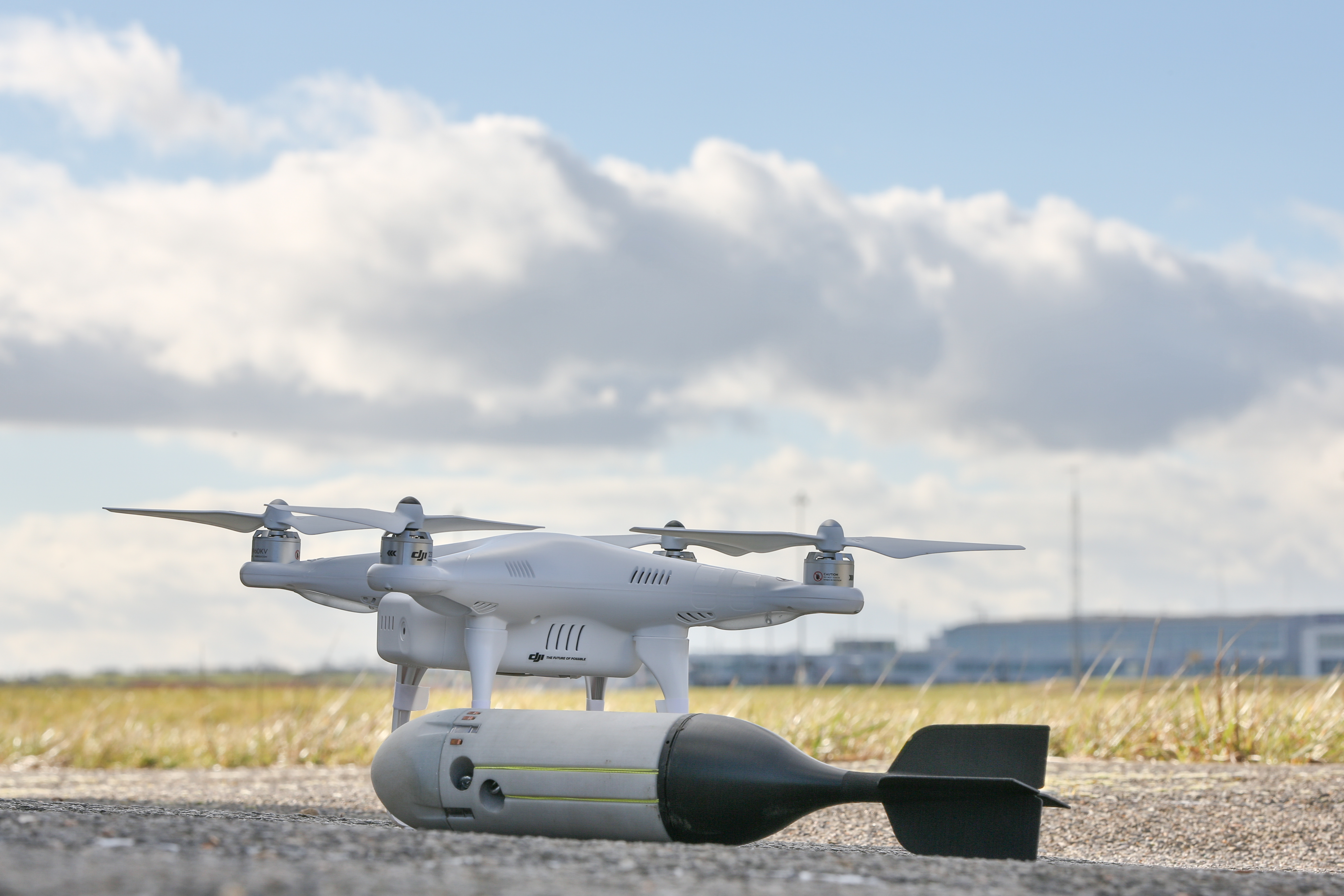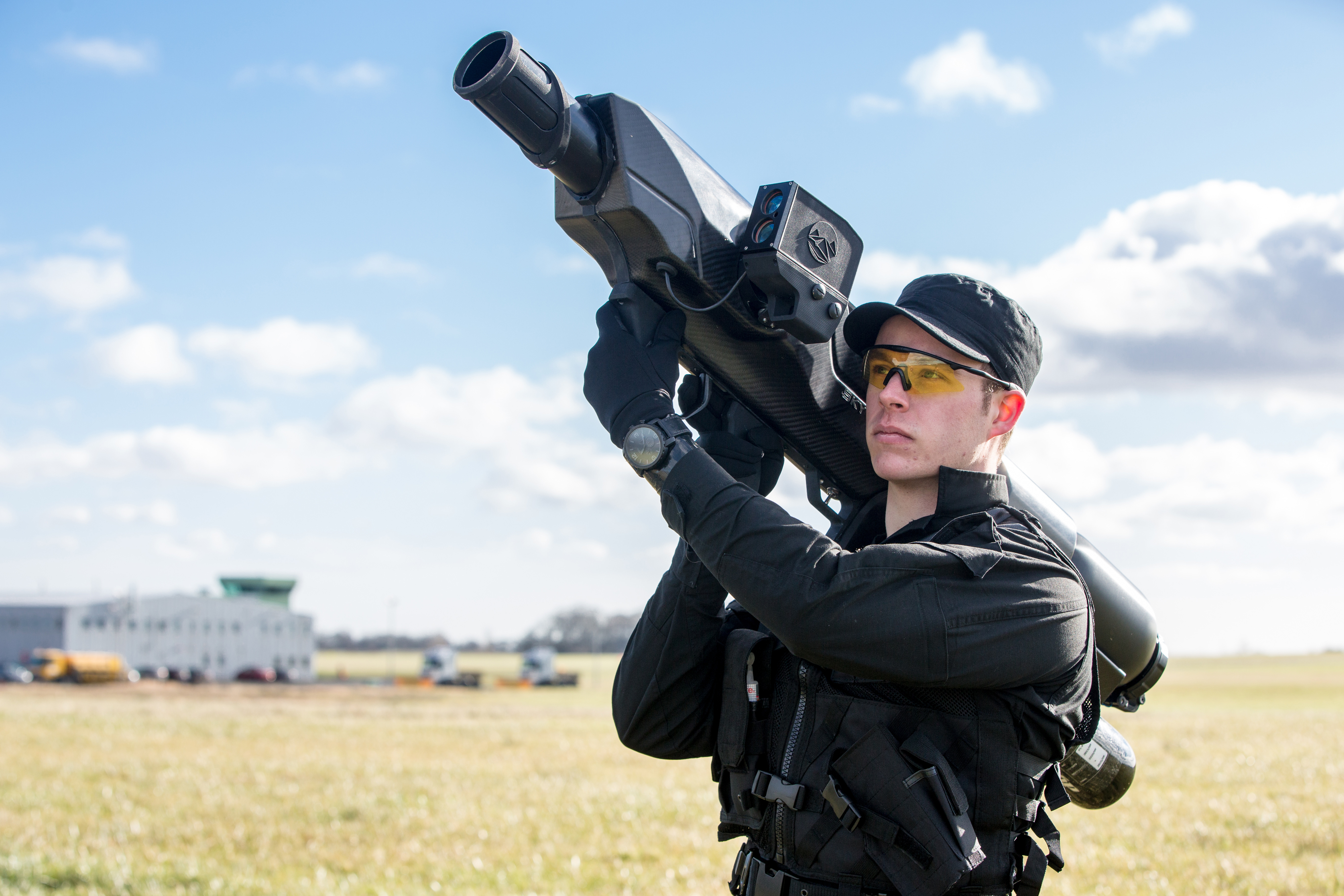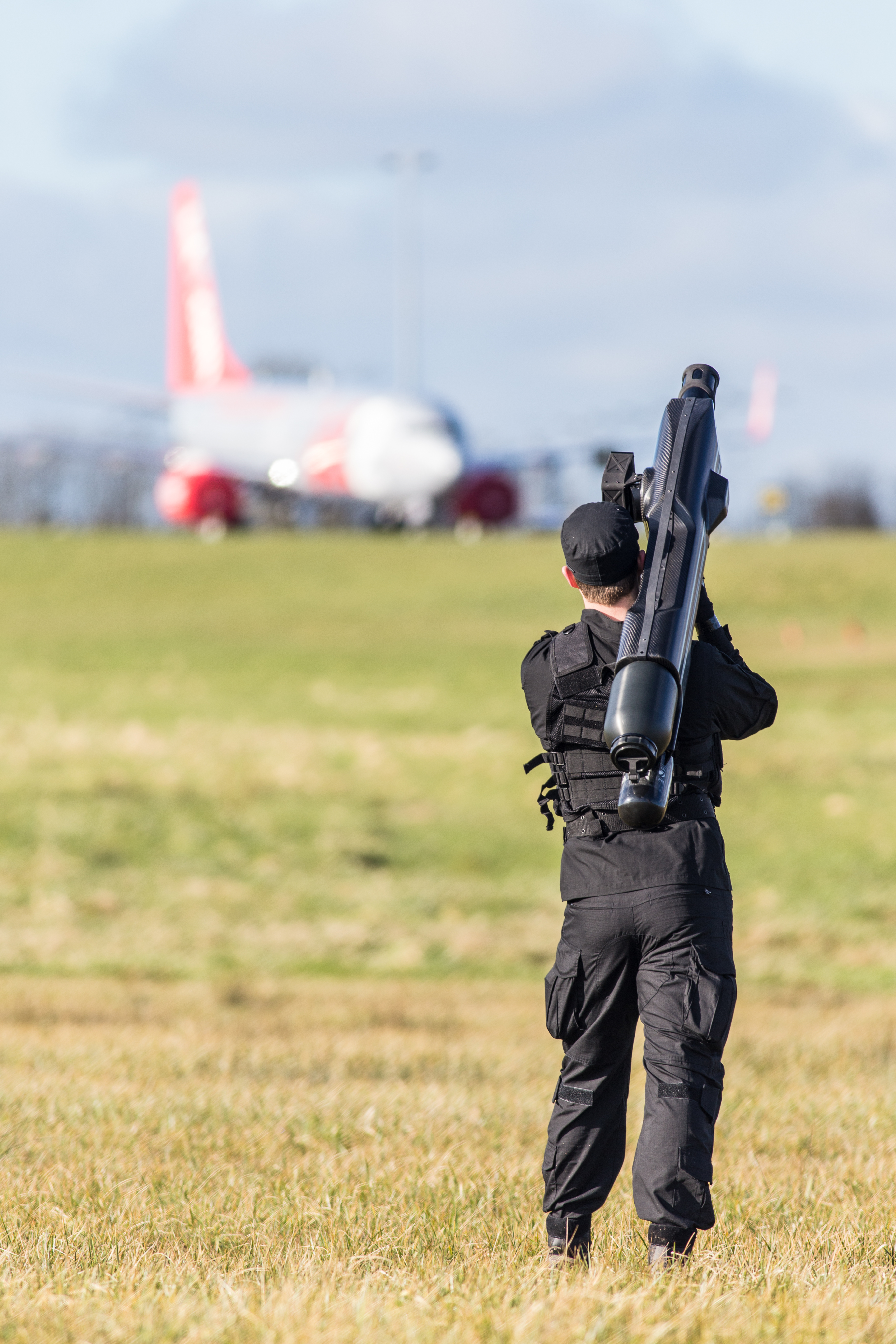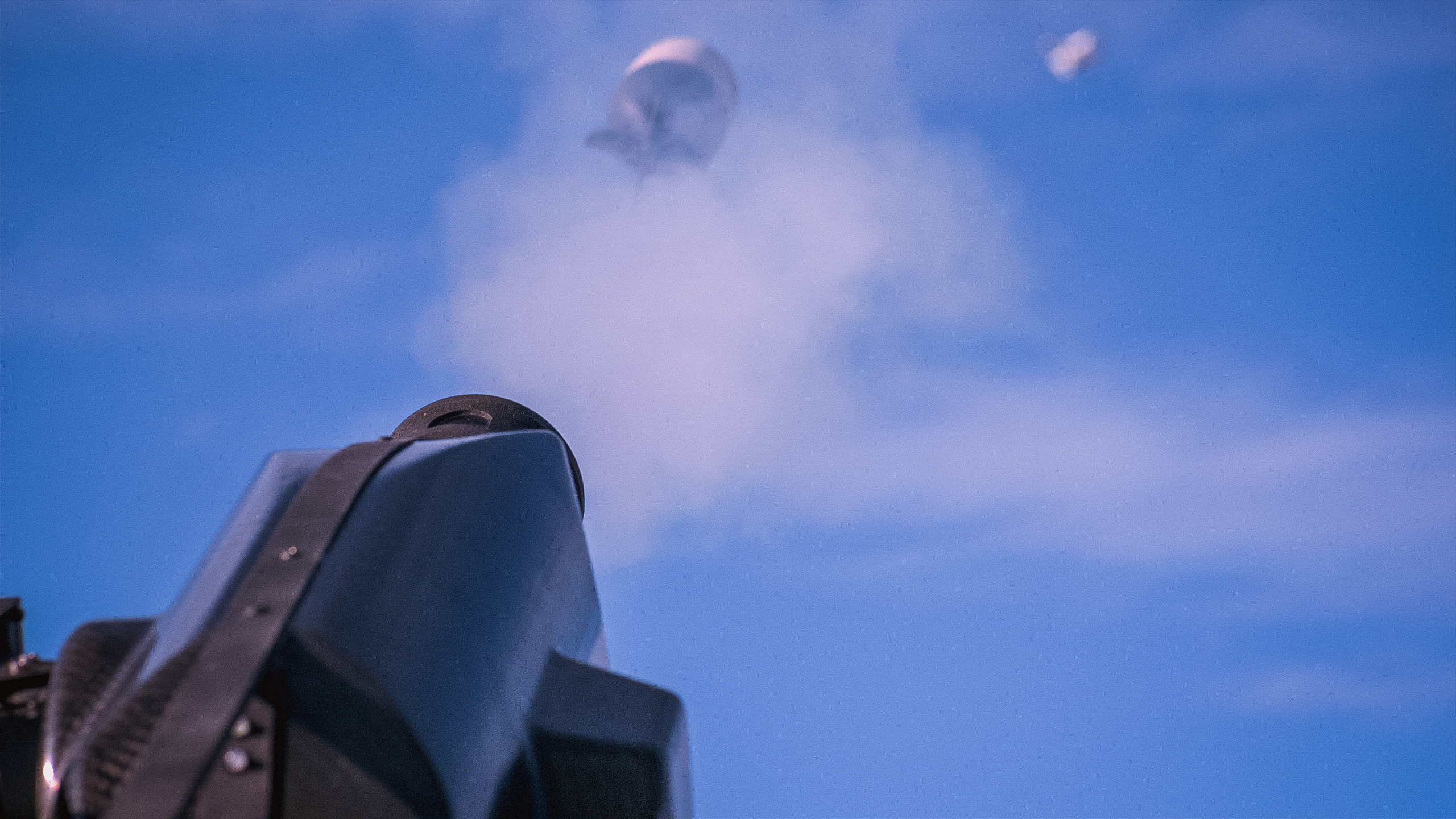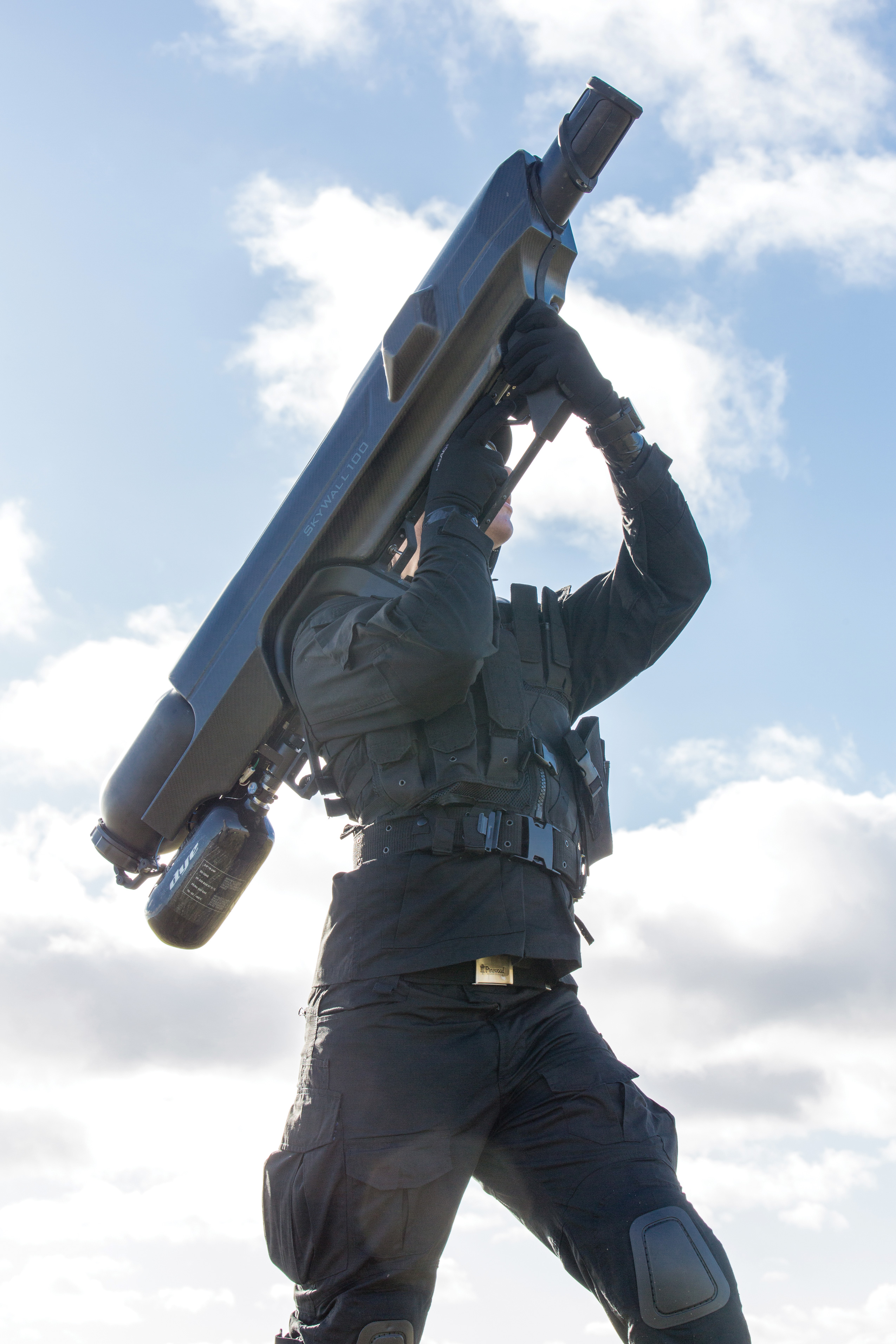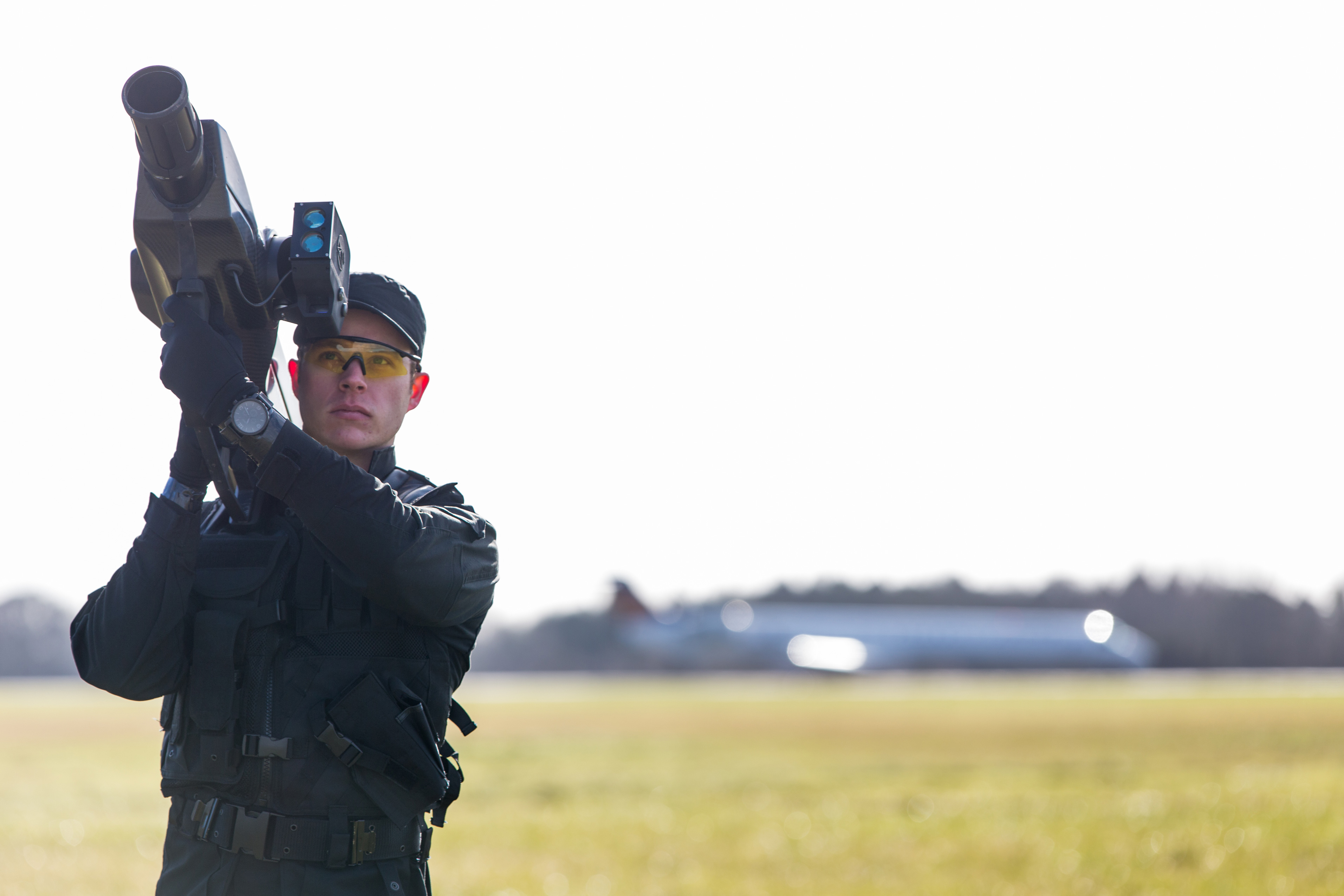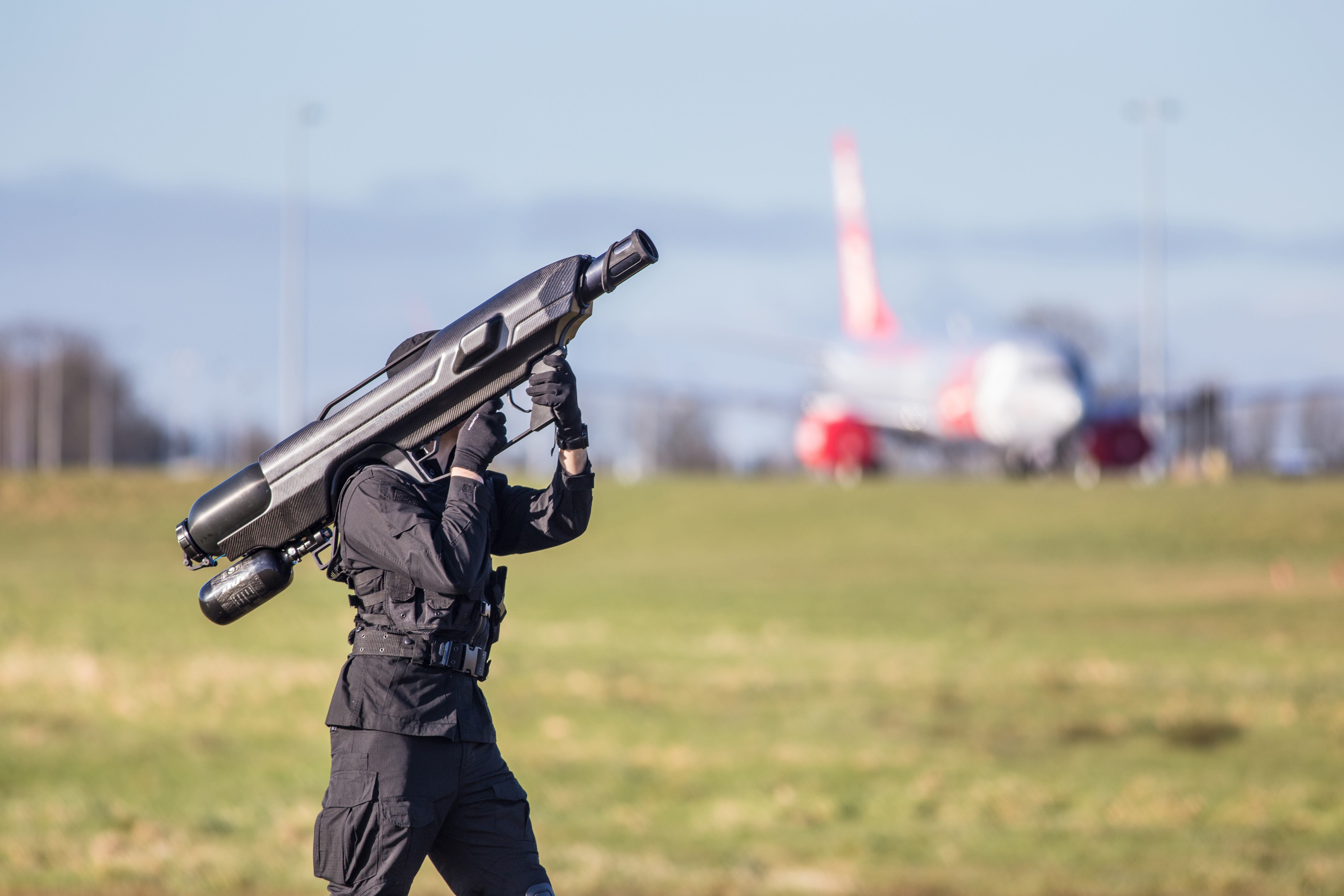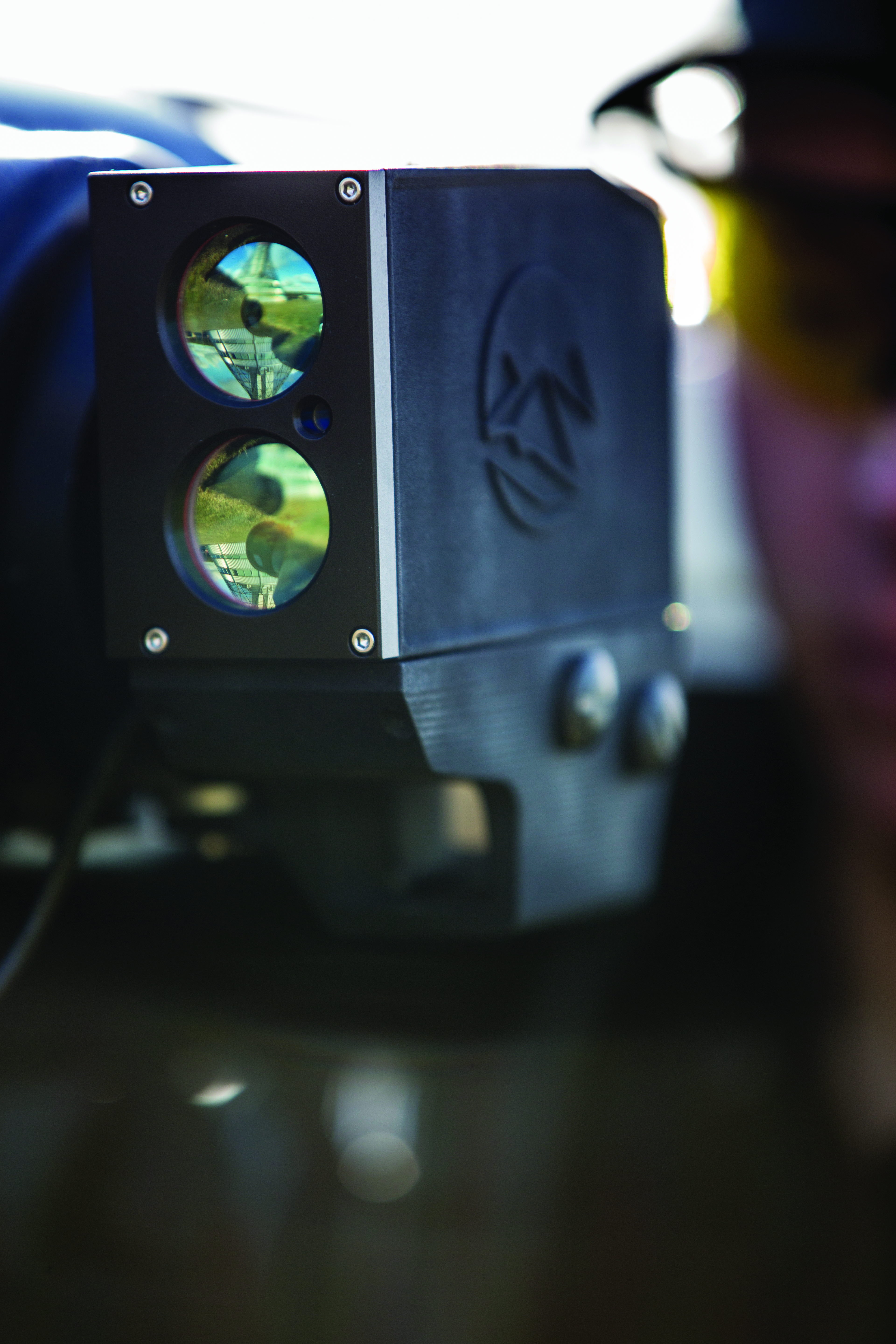The challenge of ensuring restricted airspace is kept clear of the increasingly popular remotely controlled flying machine has seen a string of firms offer up a wide range of high-tech gear that includes everything from anti-drone death rays to electromagnetic defense shields.
However, plain old-fashioned nets appear to provide the basis for many of the proposed solutions, the targeted copters rendered inoperable the moment their spinning blades become snagged in the net’s web of crossed threads. The latest creation along these lines is a net-launching bazooka called the SkyWall 100.
Created by a team of UK-based engineers, the shooter is as awesome as it sounds, and may have its operator actually hoping for a stray drone to fly by just so they can get to use it.
Weighing 22 pounds, the shoulder-mounted cannon uses compressed air to fire a net at a rogue drone up to 100 meters away. Once it’s nabbed the machine, the system deploys a parachute to bring it safely back to terra firma in one piece, important if law enforcement needs to conduct a forensic examination of the device or locate a serial number to identify the owner.
The SkyWall 100, designed by Open Works Engineering, incorporates a “smart scope” display that uses predictive algorithms enabling the operator to more easily engage with the target, whether it’s hovering in one spot or moving at speed. Also, the highly mobile system can be quickly reloaded so the shooter can, if necessary, deal with multiple drone threats.
Cops in Japan were one of the early adopters of this somewhat low-tech solution, last year unveiling a large net-carrying multi-rotor flying machine that chases after suspicious drones before ensnaring it and returning with it to base.
More impressive is a modified octocopter from students at Michigan Tech University which, similar to the SkyWall 100, shoots a net at the target drone. The net is tethered to the octocopter, enabling it to fly its catch back to the operator.
As for the SkyWall 100, we don’t yet have any details on how much the contraption will cost, but the company aims to have it on the market by the end of the year. Rogue drones, beware.
